
The Kingdom of Lesotho, which is entirely landlocked, shares a border of 909km with three of South Africa’s provinces, namely the Free State, KwaZulu-Natal, and the Eastern Cape. In many instances, the border does not exist in any physical sense, but is an “artificial border on a map”, according to researcher Richard Chelin.
Chelin works on the Enact Africa program, which is funded by the EU and aims to enhance the response to transnational organized crime on the continent, at the Institute for Security Studies (ISS). He specializes in three areas, namely cybercrime, natural resource exploitation, and wildlife crimes such as poaching and illicit trade in fauna or flora.
It was his research in these fields that prompted him to take a closer look at the effects of transnational livestock theft committed by crime syndicates operating between South Africa and Lesotho.
“We’ve found that this [livestock theft] has a much more detrimental effect on the economy than previously thought, and is becoming more violent,” he says. He adds that organized livestock theft feeds into other, more serious, types of transnational organized crimes such as drugs, weapons and human trafficking. Ultimately, this results in the creation of illicit financial flows, which are estimated to cost African countries more than US$50 billion (about R700 billion) per annum.
POROUS BORDER
This story is from the February 14, 2020 edition of Farmer's Weekly.
Start your 7-day Magzter GOLD free trial to access thousands of curated premium stories, and 8,500+ magazines and newspapers.
Already a subscriber ? Sign In
This story is from the February 14, 2020 edition of Farmer's Weekly.
Start your 7-day Magzter GOLD free trial to access thousands of curated premium stories, and 8,500+ magazines and newspapers.
Already a subscriber? Sign In
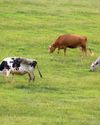
Africa goes from net carbon sink to source
New research shows Africa's impact on greenhouse gases and the need to focus on climate-smart agriculture
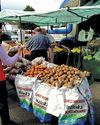
Ireland potato farmers unable to complete planting
Irish potato farmers have reported a delay in harvest and said that the UK might have to prepare for shortages of the produce. The shortfall is due to extreme wet weather during their planting season.
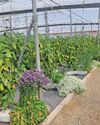
Zero-residue fresh produce a reality
Retail giants are calling for caution when using biologicals and chemical pesticides,
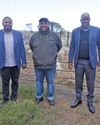
Big boost for mohair producers in Eastern Cape
A collaboration between the Eastern Cape Development Corporation (ECDC) and the Mohair Empowerment Trust (MET) has resulted in a R1,4 million injection into four emerging Angora goat farming operations in the Eastern Cape.
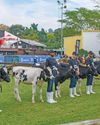
KZN Youth Show at Roval Agricultural Exhibition
The KZN Youth Show will run from Friday, 24 May to Sunday, 26 May at the Royal Showgrounds in Pietermaritzburg.
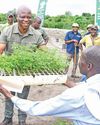
Hemp permits and irrigation system handed over
In an effort to fast-track the entry of rural farmers into the cannabis and hemp industries, KwaZuluNatal Minister for Agriculture and Rural Development, Super Zuma, visited the Shukasibheme Project in Mbazwana, a co-operative in Mseleni, uMhlabuyalingana in the Umkhanyakude District, to hand over cannabis and hemp permits as well as a borehole and irrigation system.

Meet some of the heroes behind avitourism destinations
Exploring what the Garden Route offers birdwatchers, Brian Berkman discovers some special people who run hospitable places to meet and see a variety of species.
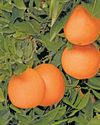
What the Citrus Academy offers aspiring producers
Cobus du Plessis takes a look at the Citrus Growers' Association of Southern Africa's Citrus Academy and how it is helping to develop aspiring farmers in the sector.

Natural-born killers of the insect world
The Myrmeleontidae family of lacewings from the Neuroptera order of insects consists of about 2 000 species of which 125 are found in South Africa.
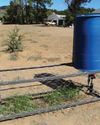
Seeder kick-starts vegetation in challenging environments
Dr George Craven of Noorspoort, Steytlerville, in the south-eastern Karoo, is successfully using a home-built 'bedstead seeder' to re-establish veld plants in an arid area, writes Roelof Bezuidenhout.